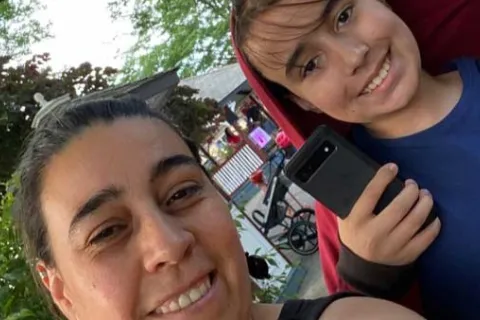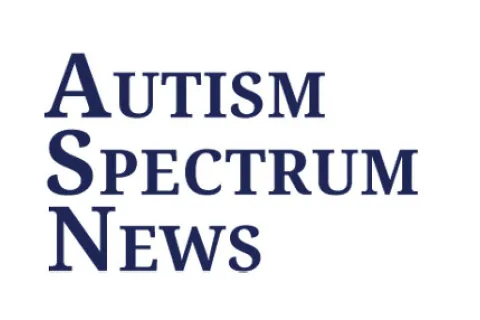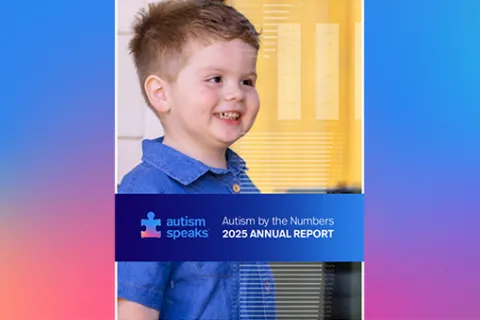John Frizzell: Leveraging the talents of autistic individuals to 'boldy go where no one has gone before'
By John FrizzellAcclaimed composer John Frizzell recently shared his autism diagnosis as an adult on Autism Speaks’ podcast Adulting on the Spectrum. Recognized for his work on films such as Dante’s Peak, Alien: Resurrection, I Still Know What You Did Last Summer, Office Space, Beavis and Butt-Head Do America, and the television series King of the Hill, John describes strengths and differences his autism offers that have helped him excel in his career. In detailing his journey, John reinforces how other individuals on the spectrum should be afforded the same opportunity to leverage their superpowers, and how in recognizing their unique abilities, employers can boldly venture on to ‘the final frontier” with a group of innovative thought leaders by their side.
In early 2002, I was goofing off with friends to see who could score the highest on an online IQ quiz when I came across a link to what’s known as the 'Autism Spectrum Quotient Test.' Designed by the prominent British clinical psychologist Simon Baron-Cohen, the test comprises 50 questions, and much to my surprise, I “passed” with flying colors. The results said I was very likely autistic. I dismissed it as an online gimmick. I don’t look or act like ‘Rain Man’ I told myself.
For the next two decades, those test results lingered in my mind. Each time I read an article on Asperger's or autism (the terms were used distinctly until 2013), I would try to convince myself, ‘That’s not me.’ The turning point came during the pandemic when I fixated on philosophy, obscure mathematics, and science – much to my family’s annoyance. In contrast to the loneliness many experienced during society’s shutdown, I found comfort in the reduced social demands of remote work. Eventually, I pursued and received a formal diagnosis: Autism Spectrum Disorder Level 1.
I have had a highly successful three-decade career composing music for film and television, a path shaped indelibly by my autism. In the early 1990s, my endless tinkering with digital samplers led to collaborations with legendary composers Ryuichi Sakamoto and James Newton Howard. My intense focus and unorthodox thinking proved invaluable to these partnerships. In 1997, faced with Universal Pictures' rush to release the film Dante’s Peak,' I composed, recorded, and delivered over 100 minutes of intricate film music in just over four weeks. My ability to concentrate intensely for long stretches and work within precise parameters—what I later learned are traits of my autism—were crucial in getting that film in theaters on time. Mike Judge, who I worked with to pinpoint the tones of projects like Office Space, King of the Hill and the 2022 film Beavis and Butt-Head Do the Universe, was someone who saw the value of my detail-oriented nature combined with my musical ear and championed me as I moved on to pursue other major projects, such as Alien: Resurrectionwith Jean Pierre Jeunet.
But along the way, I have faced an even bigger challenge than high-stakes collaborations and deadlines: the interview process for jobs, which, in its conventional format, has often masked the unique abilities I bring to a project.
Despite being shortlisted for many projects based on my resume, I consistently lost gig after gig following the final interview stage. My former agents encouraged me to study social skills, body language and other techniques to improve my personal presentation.
I read Tony Robbins and consulted with various coaches. Soon, I had developed a quiver of techniques that are largely considered “socially acceptable.” I learned the “rules” of eye contact, the “normal” flow of conversation, how to sit down in a chair “effectively.” But applying these “tricks” in real time proved distracting. My focus would shift from presenting my ideas to performing these social rituals. The film needed a great score and my social skills seemed beside the point.
Shortly after receiving my formal diagnosis in 2021—and experiencing an indescribable sense of relief in acknowledging my autism not as a deficit but as a unique way of experiencing the world—I found myself chatting with rock legend Stephen Stills, and his wife, Krissy, who told me about their work with Autism Speaks and the event, Light Up the Blues. That night, I opened up about my autism for the first time beyond my close circle of family and colleagues, and soon after, felt comfortable enough to share my story on Autism Speaks’ Adulting on the Spectrum podcast.
In my conversations with the show's autistic co-host, Eileen Lamb, we kept returning to one subject: the barriers to employment that autistic people face. Removing those barriers and increasing employment opportunities for my autistic community has been the focus of my advocacy efforts ever since.
In 2004, I composed the score for “The Forge,” an episode of Star Trek: Enterprise. The work was a delight, but it wasn't until much later, as I got to thinking about how Star Trek'sMr. Spock is often cited as a hero by autism pioneer Temple Grandin, that I began to reflect on the parallels between the value of Vulcan and autistic traits. Though Spock is not identified as an autistic character, this analogy led me to question why the unique abilities of autistic individuals aren't valued in the workplace in the same way the USS Enterprise crew relies on Vulcan sensibilities. Captain James T. Kirk sees Spock's qualities as indispensable to his mission, leveraging them as key tools for success and survival through the countless challenges depicted on Star Trek.
The work of Autism Speaks, combined with organizations such as Delivering Jobs, Auticon, Aspiritech, and Zavicon, which are pioneering the integration of autistic talent across diverse employment sectors in addressing the barriers that exist in both hiring and retention are changing the conversation around inclusion. Training programs that touch on everything from making simple yet impactful modifications to lighting and noise in the workplace to educating employers on how to better understand the different work styles, and educating co-workers on communication preferences have the power to make a difference.
But the real change will occur when leaders understand that hiring autistic people isn’t an act of charity but essential to the success of their businesses. If you're at the helm of a company and haven't yet tapped into the potential of autistic talent, it's akin to navigating the Enterprise without a Vulcan. The savviest leaders will embrace the extraordinary talents of the autistic community and the innovation and creativity that emerges from out-of-the box thinking.







